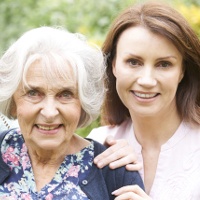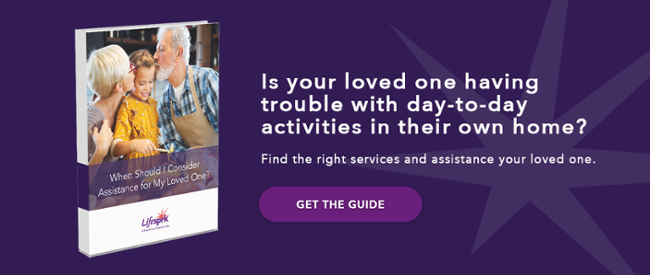
It’s your elder parent’s life and she wants to live it her way. But those choices have ramifications for you and your life too. The discussions can get heated and your mom may dig in her heels. Maybe she’s declaring she’s not moving and she’s definitely doesn’t need in-home care. But you’re tired of jumping every time there is a health crisis – you love her, but she’s been to the ER four times in the last six weeks.
Most people, according to physician and best-selling author Atul Gawande, want autonomy for themselves but safety for those we love (no matter what their age).
“That feeds directly into people maintaining control over their life,” explains Lifesprk Life Care Manager Mary Claire O’Brien, RN, who has worked with hundreds of families and seniors to develop elder Life Care Plans.
“An older loved one’s health crisis,” she continues, “is a perfect example of how you can feel out of control of your own life, even as you are acting on behalf of a loved one. You can feel your life  derailing your own priorities too. I think about the aging process so often. It is great people are living longer but in our work we also see that those years create more opportunities for changes that can compromise quality of life for everyone involved. We especially see this for couples who are not aging the same way – it changes their roles and relationships.”
derailing your own priorities too. I think about the aging process so often. It is great people are living longer but in our work we also see that those years create more opportunities for changes that can compromise quality of life for everyone involved. We especially see this for couples who are not aging the same way – it changes their roles and relationships.”
She adds that the aging process can be confounding. “Your loved one is changing before your eyes, and some challenging dynamics exist.” Yet most older people want to live, not simply exist. Wouldn’t we all want the same for ourselves?
And so the issue of control gets raised. Lifesprk Life Care Managers (LCMs), who are all nurses with extensive experience working with seniors and families on elder care issues, state that in these situations people need to first understand all their options to make informed decisions with full awareness of those consequences.
That includes the right to make bad decisions for one’s self. Through their experience, LCMs have dealt with all kinds of situations and family dynamics so nothing shocks them.
Ultimately it’s not so much about who is in control but making sure it doesn’t feel out of control for anyone.
So where do you start?
Here are some questions to ask to help you face challenging situations with elderly parents:
- What would I want for myself if I were in this situation?
- What do I know about my loved one and who she really is? How is she different from me, and how does that affect the current challenge and the options available to us?
- Do we know all the available options and which ones fit best? What are the pros and cons for each of these choices, including the option to do nothing?
- What choices do I have?
- Do I fully understand my mom’s health condition and how it may progress in the future? Does she?
- What are my mom’s goals and priorities? And how do each of the options work toward those goals?
You can use these questions as the basis for a conversation with your loved one, or as preparation to talk with your loved one about the options available and the plan for care. You can also identify and involve a trusted advisor, someone who can serve as a third-party, objective professional to help facilitate the communication, align goals, and relieve tensions.
LCMs like Mary Claire create a bridge for open communication to occur, bringing relief to everyone involved. “I find the best thing I can do for families and clients is to help them demystify the situation,” says Mary Claire.
“The one thing I really try to do is to keep communication going throughout,” she adds. “It’s not someone coming in to take over. I tell my clients and families that my role is to help broaden the safety net. We’re working as a team and I am resource to keep the communication open. I can also help if they are seeking to let go of a few of the tasks, knowing they are still going to be apprised and have a say in the process, they just don’t have to do all the work themselves.”
How have you resolved control issues for an older loved one’s home care? Let us know what worked. And if you need resources to help you understand all the options available for your situation, call Lifesprk Navigation for a free consultation: 952-345-0919.



